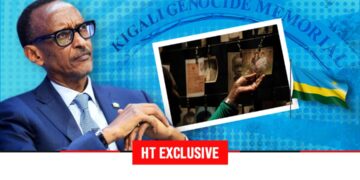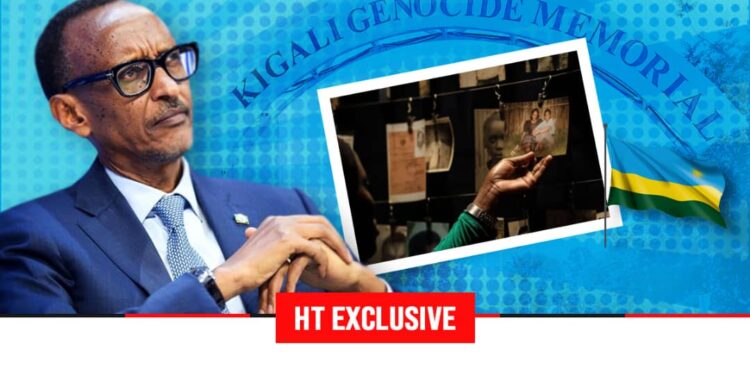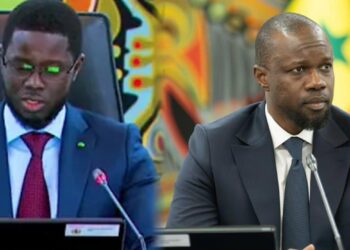Enyichukwu Enemanna
The 1994 Rwanda genocide against the Tutsi ethnic group and moderate Hutus where an estimated 800,000 patriots were brutally and inhumanly murdered by Hutu extremists, has remained one of the ugliest and darkest spots in the entire history of Africa.
Heritage Times (HT) recalls that the genocide was ignited on April 6, 1994 when a plane carrying President Juvénal Habyarimana, a member of the majority Hutu, was shot down in the capital Kigali. The Tutsi were blamed for downing the plane and killing the President. Enjoying the backing of the army and police, angry gangs of Hutu extremists started mass killing of Tutsis in apparent retaliation.
In the massacres which lasted over 100 days, historical recordings said even when some moderate Hutus tried to protect members of the Tutsi minority, they became the target.
However, as the East African country marks its 30th anniversary of the pogroms, the rest of the continent are expected to deduce a lesson or two on how to foster internal peace, tolerance and bridge the gap of unity among ethnic nationalities.
The government of President Paul Kagame, whose rebel group stopped the genocide and whose party has ruled the East African country since 1994, has made efforts to deploy legal means and other measures to bridge ethnic divisions. He has attracted commendation for presiding over relative peace and stability in the country.
The government under his watch has imposed a tough penal code to punish genocide and outlaw the ideology behind it. He has also fostered a culture of obedience among the country’s 14 million people. Rwandan ID cards no longer identify a person by ethnicity, and lessons about the genocide are part of the curriculum in schools.
Despite the huge economic setback brought about by the genocide, Rwanda has emerged from the dust of its blood, sorrow and tears to the pinnacle of development in infrastructure and human capital development. During the days of horror, roads were destroyed, buildings were burned and much of the nation’s workforce was displaced or even killed. Yet, in the last three decades, Rwanda has rebuilt itself and is betting on its infrastructure as a key factor in making it one of Africa’s most powerful economies.
Genocide Induced By Bad Governance
Africa has in recent decades faced myriads of security and economic challenges, exacerbated by the inability of leaders to take proactive steps to entrench good governance. This has resulted to a burgeoning shrinking living standard among millions of citizens across the continent.
The persistent and growing strength of violent extremist organizations has escalated humanitarian crisis and spread instability across Africa. According to a report obtained by Heritage Times (HT) from Africa Centre, in 2023, fatalities from militant Islamist violence in Africa rose by 20 percent, from 19,412 in 2022 to 23,322 reaching “a record level of lethal violence.”
This represents almost a doubling in deaths since 2021 and a 101,300 percent jump since 2002-2003. Lack of synergy among African leaders has also been linked to growing terror activities in the Sahel that has killed several thousands of persons. Internal security challenges such as abduction and banditry has also contributed to several deaths across the continent, even as the people live in fear and tension.
According to International Organization on Migration’s Missing Migrants Project, at least 63,000 deaths and disappearances of women, men and children has been recorded world-wide since 2014. The vast majority of migrant deaths recorded by the project have been in the Mediterranean Sea, where almost 28,000 people, especially young persons fleeing poverty and hunger from Africa have been recorded dead or missing since 2014 till date.
These irregular migrations are largely due to dwindling access to economic activities across the continent in addition to fear and tension stoked by terror groups. Leaders who accord more priority to their ethnic or religious groups over the rest of the citizens pose a threat to the collective desire of Africa to move forward as a united and indivisible continent.
France Could Have Prevented Genocide — Macron
Ahead of the 30th anniversary on Sunday, April 7, President of France, Emmanuel Macron said his country and its allies could have stopped the genocide but lacked the will to do so.
Macron had in a 2021 visit to Rwanda acknowledged France’s “responsibility” in the genocide. He stopped short of an apology, but Rwandan leader, Kagame signaled that a page had been turned in France-Rwanda ties, following a series of French efforts to mend ties between the two countries. The Rwandan government has long accused France of “enabling” the genocide.
In a video message, Macron emphasised that “when the phase of total extermination against the Tutsis began, the international community had the means to know and act,” a French presidential official said.
“I have no word to add, no word to take away from what I told you that day,” Macron said Sunday.
“We have all abandoned hundreds of thousands of victims to this infernal closed door.”
At the time of the genocide, the French government had been a long-standing backer of Rwanda’s Hutu-dominated regime, leading to decades of tensions between the two countries.
Also, in paying tribute to victims of the genocide on Sunday 30 years after, Kagame said the international community “failed” his country during the period of genocide.
“Rwanda was completely humbled by the magnitude of our loss. And the lessons we learned are engraved in blood,” Kagame said in Kigali during a solemn ceremony to commemorate the dark day.
“It was the international community which failed all of us, whether from contempt or cowardice,” he said, addressing an audience that included several African heads of state and former US President Bill Clinton, who had called the genocide the biggest failure of his administration.
Kagame also placed wreathes on mass graves and lighting a remembrance flame at the Kigali Genocide Memorial, where more than 250,000 victims are believed to be buried.
Sunday’s events mark the start of a week of national mourning, with Rwanda effectively coming to a standstill and national flags flown at half-mast.
Music will not be allowed in public places or on the radio, while sports events and movies are banned from TV broadcasts, unless connected to what has been dubbed “Kwibuka (Remembrance) 30.”
Justice Against Perpetrators
According to Rwanda, hundreds of genocide suspects remain at large, including in neighbouring nations such as the Democratic Republic of Congo (DRC) and Uganda. Only 28 have been extradited to Rwanda from around the world.
France, one of the top destinations for Rwandans fleeing justice at home, has tried and convicted half a dozen people over their involvement in the killings.
Former high-level government officials and other key figures behind the massacres are among those that have been brought to justice, and more than a dozen prosecutions of genocide suspects are being conducted in domestic courts across Europe under the principle of universal jurisdiction.
In recent years, several high-level alleged genocide masterminds have died, or, in the case of one alleged planner, been declared unfit to stand trial, highlighting the urgent need to continue the quest to deliver justice.
“The genocide in Rwanda remains a stain on our collective conscience and, 30 years later, lessons can still be drawn from the actions – or lack thereof – of world leaders in the face of ongoing atrocities,” said Tirana Hassan, executive director at Human Rights Watch. “There is an urgent need to expedite the pursuit of justice to ensure that the remaining architects of the genocide are held to account before it is too late.”
The United Nations Security Council created the International Criminal Tribunal for Rwanda (ICTR) in 1994 in response to the genocide. The tribunal indicted 93 people, convicted and sentenced 62, and acquitted 14. The remaining defendants had their cases transferred to national jurisdictions, while other suspects died before being presented before a judge or remain fugitives.
The tribunal made significant contributions to establishing the truth about the organization of the genocide and providing justice to victims. Des Forges appeared as an expert witness in 11 genocide trials at the tribunal.
However, the ICTR ultimately prosecuted only a limited number of cases and was unwilling to prosecute war crimes and crimes against humanity committed by the Rwanda Patriotic Front (RPF). The tribunal formally closed on December 31, 2015




































